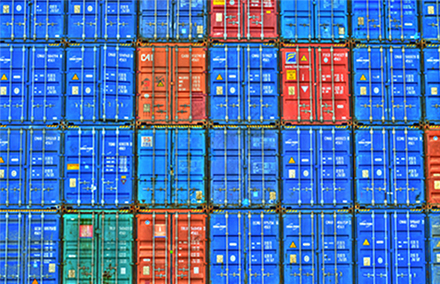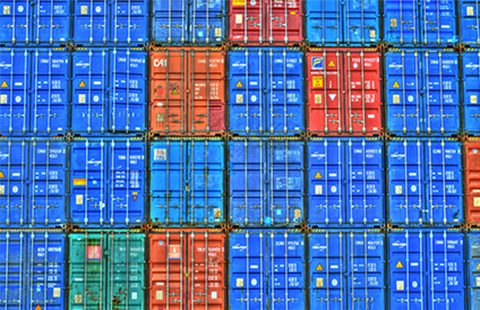
With a simple reliance on trade, Australia lacks major leadership and bold vision when it comes to strategic Asia issues, writes Donna Baker.
The media frenzy surrounding Australia’s free trade agreements (FTA) with our Asian neighbours has filled the airwaves over the last year or so.
Domestic debates have been swirling around about who is going to get the best deal. Most recently, discussion has centred on whether our FTA with China is going to erode Australian workers’ rights, or whether FTAs are really worth all the expense and effort.
This article questions whether trade agreements have become a diplomatic surrogate for the harder strategic issues. Some of which are on our doorstep.
Since Paul Keating’s prime ministership, Australia’s engagement with Asia and our diplomatic wins have been negligible and ad hoc.
In the 1990s, Keating drove the APEC agenda and made it into a leaders-level meeting where the US and China could sit at the table and big issues could be discussed. Australia’s leaders should be using forums like APEC to help hammer out solutions to some of the region’s most pressing issues.
The time has come for us to think big again and this requires vision with ministers that have the courage and determination to play a significant regional role. Policy that goes beyond a few years or having a nota bene with another country. Residing in the Asia region, we can no longer afford to leave it to bureaucrats to take the lead and risks that may need to be taken, or to have the kind of relationships Keating did.
Our region has some really intractable problems.
We now have a situation where the US and China are ‘shirt fronting’ over the South China Sea and it remains unclear how this major dispute is going to end. China has indicated it does not want to use international maritime boundaries to resolve the dispute, saying it prefers an Asian approach.
Australia will need to make hard decisions about its position and approach and that is going to take a lot of thought, effective engagement (not just on trade), and having the best people dedicated to working on such issues. Above all, it requires statesmanship.
Keating’s original APEC effort paid massive dividends, with US President Clinton agreeing to host the first APEC Economic Leaders meeting in Washington. There was a clear narrative about reducing tariffs to aid international trade. But at leaders level it was always going to be a forum where other issues could be discussed. This occurred at the 1999 APEC on East Timor crisis.
Since then however, there has been an absence of that kind of vision and action and of leaders who are willing to try new approaches. Australia’s diplomatic ship has become weak, and directionless, lost at sea for nearly two decades.
What we have seen in that time instead, is a flurrying of FTAs; a crisscrossing of trade agreements with Thailand, South Korea, China, Japan, and the Trans Pacific Partnership. Each one heralding revitalised trade and economic partnerships.
Certainly, FTAs provide governments with opportunities for frequent meetings, bilateral announcements, and agreements that can be revisited. But is that enough diplomacy? Is this what it has come to in the last 20 years since our role in advancing APEC?
The East Asia Summit, established in 2005 (encompassing ASEAN, Japan, South Korea, China, Australia, and New Zealand), was the next hopeful piece of architecture to cover international issues at a leaders’ level.
But the problem with the EAS is that it is foremost an ASEAN led organisation and Australia’s ability to have sufficient influence over it or any similar forum has been not been demonstrated.
Kevin Rudd was the next Prime Minister who understood the flagging state of Australia’s Asian engagement, though his attempts to revive it through his Asia Pacific Community (APC) idea was premature and short-lived and left a few countries annoyed about how it was rolled out. He does, however, understand the need to do something more in this area, particularly given China, India and even Indonesia’s rise and he talked about Australia being a middle power country.
Australia should be careful that FTAs do not become the mainstay of our diplomacy and a substitute for harder long-term strategic goals and effective Asia engagement. We’ve had a few missteps under the Abbott government with our relationship with Indonesia.
Keating was quoted in The Sydney Morning Herald on 1 September 2007, saying then PM John Howard let the bureaucrats take over the strategic agenda with an incrementalist approach. This will continue, until one of our leaders soon recognises the need for Australia to take an active leadership role.
Donna Baker has a Master of Asia-Pacific Studies and Bachelor of Asian Studies degree (with Honours) from the Australian National University. She has also worked on foreign policy in the Department of Foreign Affairs and Trade for 11 years including on the Indonesia, Malaysia, Singapore and South Asia desks.
 Facebook
Facebook  Twitter
Twitter  Soundcloud
Soundcloud  Youtube
Youtube  Rss
Rss 